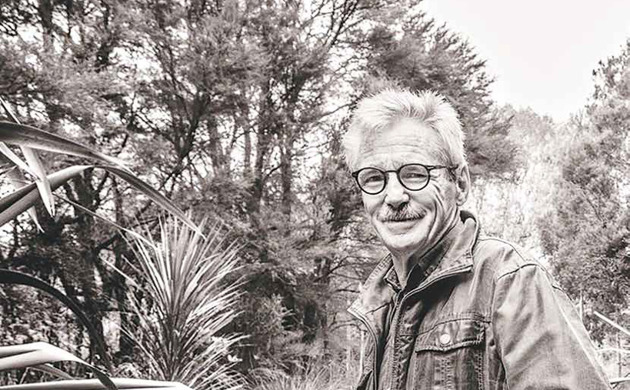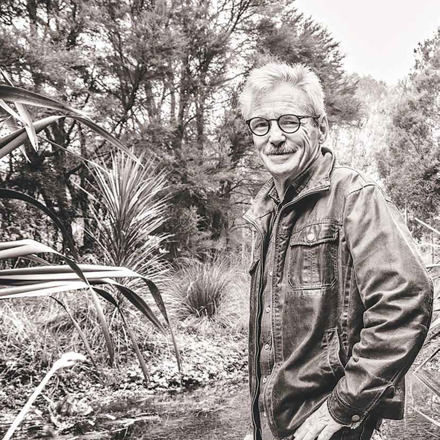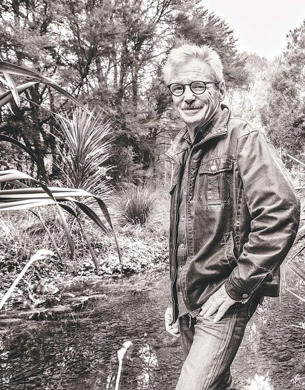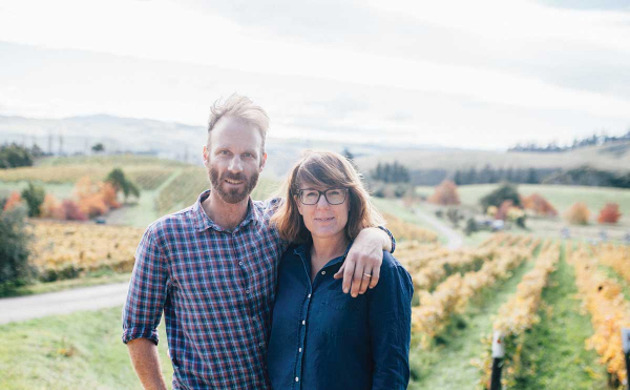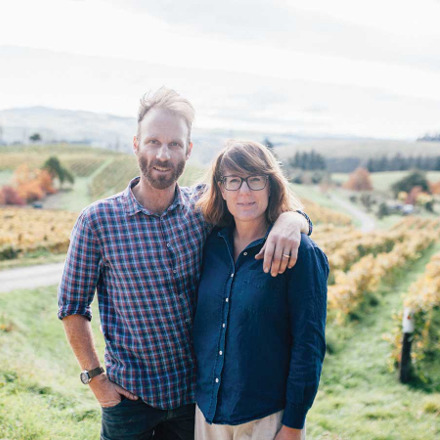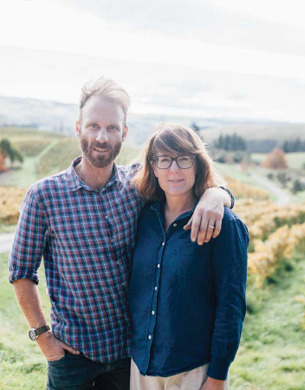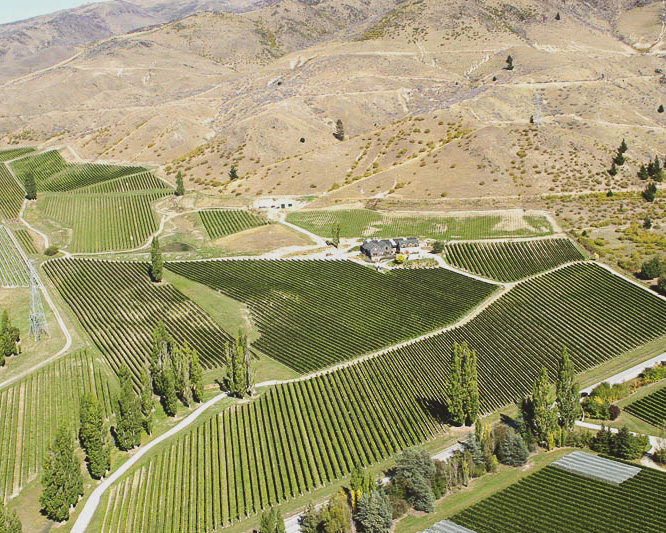
The story of Felton Road began in 1990 when 50-year-old Stewart Elms did what few are brave enough to do – give up his blackcurrant farming business and go back to school. He signed up as a mature student for Lincoln University’s viticulture and wine science course.
His goal was to make great Pinot Noir and after extensive soil and climate research, he found a perfect exposed slope just off Felton Road in Bannockburn. After persuading a hay farmer to sell the land, he began meticulously planting The Elm’s vineyard. In 1997, young winemaker Blair Walter who had been Stuart’s lab partner at Lincoln made the first official Felton Road Pinot Noir.
A bottle of the Block 3 ended up in front of renowned wine writer Robert Parker, who famously declared it good enough to be used as a ringer in a blind tasting against the very best burgundies. One vintage in and Felton Road was on the map.
At the same time, another person down the road was on their own Pinot pursuit. Having sold his company, Nigel Greening had decided to go and live in New Zealand for a year. Nigel was already aware of the early Central Otago Pinots and their potential. Settling in Wanaka, Nigel began his search for the right site, then recruiting help from Gibbston Valley founder Alan Brady.
Nigel purchased an apricot orchard called Cornish Point in 1999 and began to rip up the trees to replace with vines. Just a year later, word reached him that Felton Road was up for sale. With Brady acting as an intermediary, Greening put in an offer and within three days was the proud owner of his favourite wine: Felton Road and the Elms Vineyard.
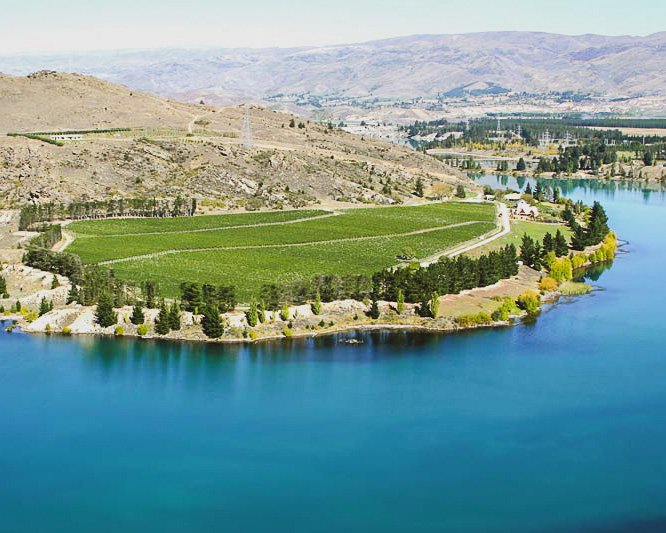
Today, the winery has grown to encompass four vineyards in Bannockburn, with 32 hectares of grapes as well as a similar amount of hill country dedicated to farming.
Felton Road’s export markets were mainly developed between 2000 and 2006. During this time, Central Otago Pinot Noir was attracting international attention and global demand was strong. There had been a huge increase in Pinot plantings in the region through 2001-2003, and Nigel was aware that this would lead to a sudden flood of wine onto the market.
He created a bold business strategy, centred on first and foremost spreading the limited production thin to build a formidable international brand.
“Our rule was simple: look at a market. Is there a demand for fine wines? Are the great wineries of the world represented in the market? If they are, we need to be there; if you aren’t there, you aren’t in the club.”
The method for opening new markets was simple. “We would research the market by looking at the portfolios of the distributors there to see who was selling wines we like to be seen with. You quickly find who has the good names on their list. Then we would arrange an introduction.”
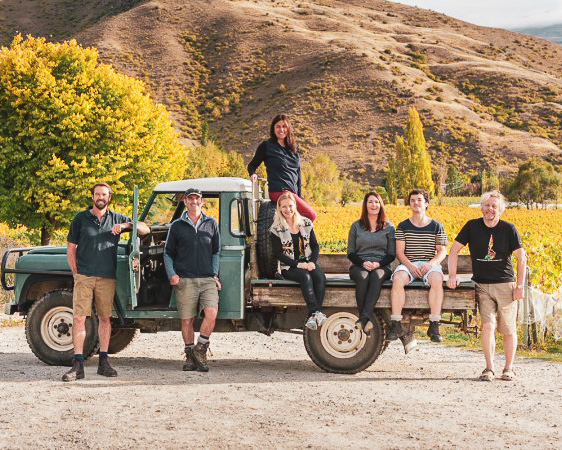
They would find a respected intermediary or matchmaker to open the conversation. “This has almost always worked.”
Once Felton Road was established in the market, they would visit often to nurture relationships, even when it didn’t necessarily make financial sense. “You need to commit to a partner and encourage them to engage with the wines,” says Nigel.
The second part of Nigel’s bold strategy was becoming a ‘zero growth company’ as part of their environmental sustainability commitment. “We set the size (no more than 150,000 bottles) in 2000 and reached it in vintage 2006. We have not grown since.” Most of their export growth was before 2006 and since then they have only added smaller markets or fine-tuned existing ones.
They now export to approximately 40 countries and are frequently ranked high in the Drinks International magazine’s "World’s Most Admired Wine Brands" list. Remarkably, they have earned their reputation without a sales team and without a marketing budget, with Nigel and Blair splitting the market visits between them.
Nigel’s main objective is always to be regarded as a key producer of fine wines on the global stage.
“We get there through a combination of a relentless pursuit of quality, ignoring hype (including social media), setting the very highest environmental and ethical standards, supporting and nurturing our staff, and being perpetually curious.”
Their strategy has started to change slightly under current circumstances. “We have actually pulled back on the percentage of wine that we export… we are perpetually short of wine and we determined that our domestic customers should be offered a preferred supply.”
They have seen a small fall in domestic restaurant sales, but their retail and direct to customer is up, and exports are currently around 60% (down from about 69%) of production. “This is not due to any drop in export demand, simply a response to the surge in domestic sales, which we’d like to be able to honour.”
Blair and Nigel are passionate about wine, not just their own brand and would often attend events just out of a love for wine and meeting other makers. “We know many of the key producers around the world, often as personal friends.”
These friendships have helped develop awareness of their brand, as they extend to other people of gravitas within the wine community. “They know we love being part of the world of wine, not to sell our products but because great wines are an important part of our life. So, we are part of that world wine club of producers, sommeliers, buyers, journalists, authors, critics.”
Does Felton Road have any advice for other business? Nigel thinks there is no better time to engage with the world as a New Zealand company. “Research your markets and your competition thoroughly and respect them, don’t criticise them. You will make sales by speaking to a buyer and showing them that you know exactly how good the competition are. Be enthusiastic about their strengths as well as selling your own. You’ll be seen as knowledgeable, fair and honest, and nothing is more important in building international relationships.”







